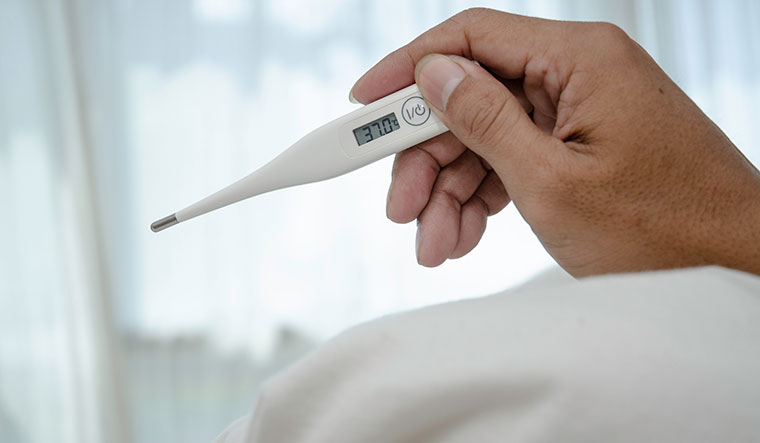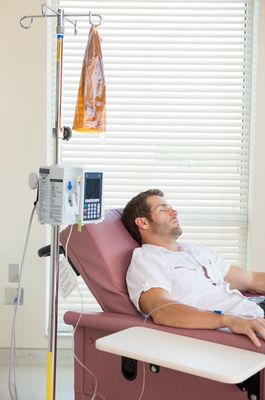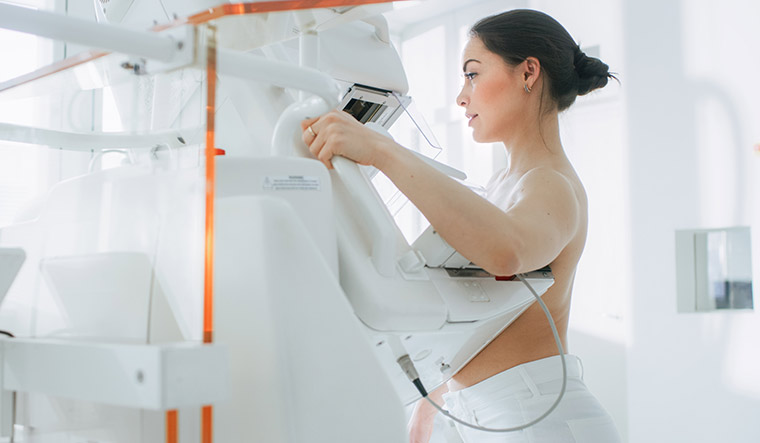PEOPLE WHO drink green tea at least three times a week may live longer and suffer a lower risk of cardiovascular disease, according to a Chinese study published in the European Journal of Preventive Cardiology.
As part of study, 1,00,902 adults free of heart attack, stroke, or cancer were followed for a median of 7.3 years.
Habitual tea drinkers (three or more times a week) had a 20 per cent lower risk of heart attack and stroke, 22 per cent lower risk of dying from heart disease and stroke, and 15 per cent lower risk of dying from all causes compared to non-habitual tea drinkers (less than three times a week).
An analysis of a subset of 14,081 participants found that habitual tea drinkers had a 39 per cent lower risk of heart disease and stroke, 56 per cent lower risk of fatal heart disease and stroke, and 29 per cent lower risk of all-cause mortality compared to never or non-habitual tea drinkers.
Abstain from alcohol to ease a-fib
GIVING UP alcohol can reduce the symptoms of atrial fibrillation (a-fib), or irregular heart rhythm. Previous studies have shown that the incidence of a-fib increases by 8 per cent for every one standard drink. The researchers wanted to see if abstinence or alcohol reduction can reduce a-fib episodes and time to recurrence. The Australian study published in The New England Journal of Medicine included 140 adults, average age 63, who suffered from a-fib and consumed 10 or more standard drinks per week. All the participants were moderate drinkers.
Half of them were randomly assigned to abstain from alcohol for six months, while the other half (the control group) were allowed to drink as usual.
While about two-thirds of the abstinence group gave up alcohol completely, the other third still consumed two or fewer drinks per week.
A-fib episodes were much lower in the abstinence group compared to the control group. While 73 per cent of the patients in the control group had an a-fib episode during the study period, only 53 per cent of the patients in the abstinence group had an episode.
Patients who abstained from alcohol also saw significant reduction in weight and blood pressure.
Stroke signal
According to a study published in the journal Stroke, patients who suffer a stroke for the first time have a considerably increased risk of major heart problems, even if they do not have any preexisting heart condition.
The study included 93,627 men and women without known heart diseases. Among them, 21,931 (12,421 women and 9,510 men) had suffered an ischaemic stroke for the first time.
The risk of a major cardiac event such as a heart attack, coronary artery disease, heart failure or cardiovascular death was significantly higher in both men and women after suffering a first time stroke compared to those who did not have a stroke.
The risk was highest within 30 days of suffering a stroke: 25 times higher in women and 23 times higher in men.
The risk decreased with time, but still remained significant. Between 31 and 90 days, the risk was nearly 5 times higher for women and 4 times higher for men. Both men and women still had twice the risk of a major cardiac event between 91 and up to 365 days.
The risk was higher even in patients without underlying heart diseases and risk factors such as hypertension, diabetes and smoking.
Did You Know?
Running a marathon for the first time was associated with reduced blood pressure and arterial stiffness equivalent to a four-year reduction in vascular age.
Journal of the American College of Cardiology
98.6 F no longer the normal body temperature
THE AVERAGE HUMAN body temperature is falling.
The average human body temperature was set at 98.6 Fahrenheit in 1851.
But according to Stanford researchers that is no longer correct.
For the study published in eLife researchers analysed more than 6,77,423 body temperature measurements from three datasets: 23,710 readings from 1862 to 1930; 15,301 readings from 1971 to 1975; and 1,50,280 readings from 2007 to 2017.
The body temperature of men born in the 2000s is on average 1.06 F lower than that of men born in the early 1800s. Likewise, the body temperature of women born in the 2000s is on average 0.58 F lower than that of women born in the 1890s.
The mean body temperature is 1.6 per cent lower than the 1800s. The average body temperature today is about 97.5 F.
Another recent study found that the average body temperature of 25,000 Britons was 97.9 F.
The researchers are not fully sure about the reason for this downward trend. One possible explanation could be the reduction in metabolic rate (the amount of energy people use) brought about by a population-wide decline in inflammation which could be the result of economic development, improved standard of living, advancement in dental and medical care, and the consistent indoor temperatures maintained by modern heating and air conditioning.
Low dose, better results
TREATING MEN with half the typical amount of chemotherapy can prevent testicular cancer recurrence, according to a study published in the journal European Urology.
Testicular cancer is the most common cancer affecting young men in their twenties and thirties. Men who undergo chemotherapy may suffer serious side effects such as hearing loss, hair loss, infections and infertility. Cutting the amount of chemotherapy in half can reduce the risk of these side effects that can have lifelong consequences.
The study included nearly 250 men with early-stage testicular cancer that had a high risk of recurrence after surgery.
Patients are currently offered two cycles of chemotherapy after surgery.
The patients in the study were given one three-week cycle of a chemotherapy known as BEP.
The researchers compared cancer recurrence rates within two years of treatment among those treated with one cycle and patients who were given two cycles.
Only three men (1.3 per cent) who received one cycle saw their testicular cancer return. This was identical to the rates seen in previous studies of patients who had received two cycles of the chemotherapy.
41 per cent of the men who received one cycle of chemotherapy had one or more serious side effects during treatment, such as an increased risk of infection, sepsis or vomiting. But only 2.6 per cent had long-term side effects such as damage to their hearing.
Natural stress busters
FEELING STRESSED at work? Keeping an indoor plant on your desk could be the solution.
According to a Japanese study published in the journal HortTechnology, just gazing at indoor plants can relieve stress at work and improve your mental health.
To scientifically analyse the degree of psychological and physiological impact of indoor plants at the workplace, the researchers recruited 63 office workers at an electric company and conducted the experiment in a real office setting, instead of a traditional lab setting.
The experiment had two phases: a control period without plants in the office and an intervention period when the participants had a small plant placed near the PC monitor on their desk.
The participants were asked to take a three-minute rest when they felt tired at work. The researchers recorded pulse rates and measured psychological stress of the participants using the state-trait anxiety inventory before and after placing a plant on the desk.
The participants had a significantly lower pulse rate after a three-minute rest with interaction with their desk plant. Anxiety decreased significantly from the control period (without plants) to the intervention period. The results were similar for employees of different age groups and with different plant selections.
Add extra years to your life
A HEALTHY lifestyle in middle age can add 10 extra years—free of chronic diseases—for women and 7 for men.
The Harvard study published in The BMJ analysed 34 years of data from 73,196 women and 28 years of data from 38,366 men.
Each participant was given a healthy lifestyle score ranging from 0 to 5 (5 being the healthiest) based on five lifestyle factors: at least 30 minutes per day of moderate to vigorous physical activity; never smoking; healthy weight; good quality diet; and moderate alcohol intake (one serving per day for women and up to two for men).
Women who followed four or five of these healthy habits at age 50 lived about 34.4 more years free of diabetes, cardiovascular diseases, and cancer, compared to 23.7 healthy years among women who followed none of these healthy habits.
Men who followed four or five healthy habits at age 50 lived 31.1 more years free of these chronic diseases compared to 23.5 years among men who practiced none. Men who smoked heavily, and obese men and women had the lowest disease-free life expectancy.
Did You Know?
Listening to music while exercising not only makes exercise more enjoyable but it can actually make it more productive and less tiresome, enhance physical performance, and improve physiological efficiency.
Psychological Bulletin
Dietary danger
BREAST CANCER patients who take certain dietary supplements during chemotherapy may be at an increased risk of disease recurrence and death, according to a US study published in the Journal of Clinical Oncology.
Dietary supplements known as antioxidants, as well as iron, vitamin B12, and omega-3 fatty acids may interfere with the ability of chemotherapy to kill cancer cells.
The study included 1,134 patients who provided information about their supplement use at the outset and during treatment, and were followed for six years. Among them, 18 per cent used at least one antioxidant daily, while 44 per cent took multivitamins.
Patients who reported taking any antioxidant, including vitamins A, C, E and carotenoids and Coenzyme Q10, both before and during chemotherapy were 41 per cent more likely to have their breast cancer return and 40 per cent more likely to die during follow-up compared to patients who did not take these supplements.
Patients taking B12 were 83 per cent more likely to experience a recurrence and had twice the risk of mortality. Patients taking omega-3 fatty acids before and during chemo had a 67 per cent higher risk of recurrence and those taking iron supplements were 91 per cent more likely to experience a recurrence.
Did You Know?
Working 49 or more hours each week was linked to a 66 per cent greater risk of developing sustained hypertension and a 70 per cent greater risk of having masked or hidden hypertension, a type that can go undetected.
Hypertension
AI to save
A NEW ARTIFICIAL intelligence (AI) system developed by Google was able to accurately detect breast cancer using mammograms and outperformed radiologists in reducing errors, according to a study published in the journal Nature.
Breast cancer affects about one in eight women globally. Mammograms are widely used to screen for breast cancer. But according to the American Cancer Society, radiologists miss about one in five cases of breast cancer (false negative) which can result in delayed detection and treatment. Also, half of all women who undergo screening for a 10-year period will get a false positive report, where cancer is wrongly suspected, which can lead to unnecessary treatments such as invasive biopsies and breast tissue removal.
The AI model can reduce such errors while accurately detecting cancer.
Researchers from the US and UK first trained an AI model to identify breast cancers on tens of thousands of mammograms, which had been previously interpreted by radiologists.
They then tested the model against a new set of 25,856 new mammograms from the UK and 3,097 in the US. The results were compared with those gathered from six radiologists in an independent study.
The AI system could detect cancers as accurately as the radiologists. But it outperformed the radiologists in reducing errors. False positives were reduced by 5.7 per cent in the US group and by 1.2 per cent in the UK group, and false negatives were reduced by 9.4 per cent in the US group, and by 2.7 per cent in the UK group.
CONTRIBUTOR: SHYLA JOVITHA ABRAHAM









